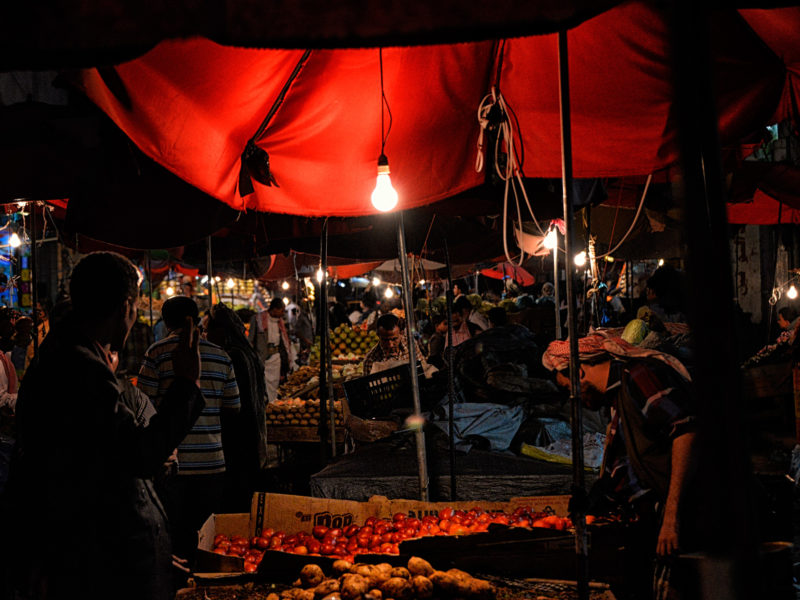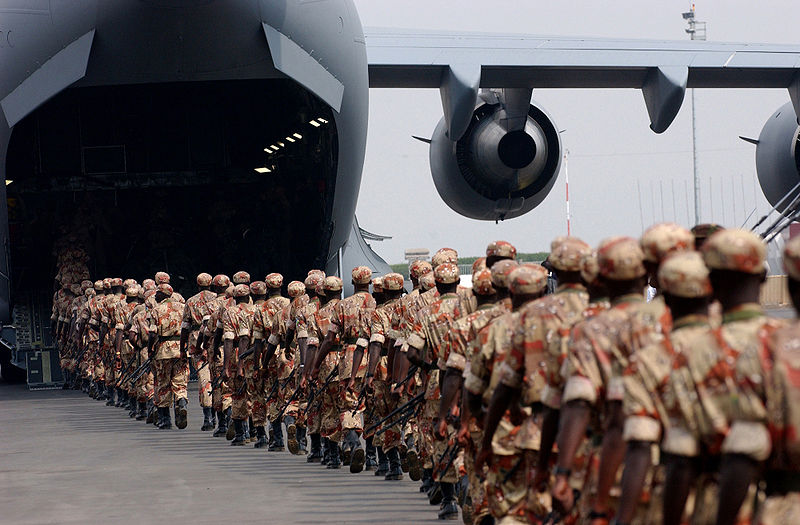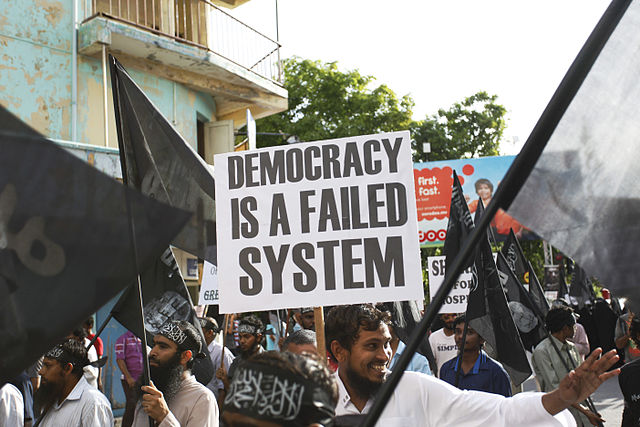Guest post by R. Joseph Huddleston, David Wood, Daniela A. Maquera Sardon, and Jarrett Dang
Protracted conflict changes lives for the ordinary people caught in the crosshairs. It also changes economies. Opposition groups compete with central governments for oversight of markets—splitting sectors, complicating or disrupting supply lines, and forcing adaptation. Markets form and shift to meet the needs of civilians, even while the rules, relevant authorities, and expectations about how the economy works remain unclear.
These adaptive economic systems—what we call “functional markets” in our recently published study—differ from other illicit economies. Unlike “black” markets, which primarily see the exchange of illegal goods like weapons or drugs, or “gray” markets, characterized by a mere lack of oversight, functional markets deal in basic subsistence-level commodities and services.
Functional markets can also affect the trajectory of the conflict itself. On one hand, they meet the basic needs of civilians—providing essential services and mitigating famine and other humanitarian catastrophes. On the other hand, they can be exploited by warring parties and create incentives for continuing the conflict. Understanding these markets and their roles in modern conflict economies is key to developing more effective policies for peace.
The Role of Functional Markets in Yemen’s Conflict
The war in Yemen has sparked a humanitarian crisis, with hunger and fighting provoking mass famine and displacement. To explore how civilians and economic actors use functional markets to cope with conflict, as well as how they might affect peace prospects, we conducted a survey of 801 Yemeni households living both in areas controlled by the internationally recognized government in Aden, and in areas controlled by Ansar Allah, also known as the Houthis.
In our conversations with Yemenis, we found that many if not most citizens turn to functional markets to purchase basic goods and services, including cooking gas, food, medicine, and currency exchange. Many say they rely on the “black market” because they are unsure of the legal status of the markets they use. As one respondent explained, “We…can’t distinguish between what is legal and illegal anymore…we are just looking to survive.”
Research in other conflict zones shows similar profit-driven “shadow economies” and survival-driven “coping economies.” For example, ad hoc markets have played an important local stabilizing role for traders on the Sudan-South Sudan border, and familial trade networks have led to remarkable prosperity in parts of the Democratic Republic of the Congo, which is otherwise hampered by protracted conflict.
While Yemen’s functional markets play a vital role in providing essential goods, they are vulnerable to exploitation by state and non-state authorities that profit from the conflict. In Ansar Allah-controlled areas, respondents reported fines and appropriation of businesses as a likely consequence of violating regulations. One striking example was the conditional nature of cooking gas prices—in Ansar Allah areas, one gas cylinder costs ten times as much for households that had not sent their sons to join the security forces, raising to price to YER 14,000 ($25), instead of YER 1,200 ($2).
Despite this dynamic, commerce and basic business relationships continue across conflict divides. Business owners we spoke with have maintained networks of support and influence with local governments, militias, and other security forces, and with business owners on the other side of the conflict. Some Yemenis we interviewed believe these business relationships could be a pathway towards slowing violence.
It would not be the first time local business communities played a vital role in peace talks. Local business elites played key roles leading up to the respective 1992 and 1996 peace accords ending the civil wars in El Salvador and Guatemala, and researchers have recognized similar opportunities in Afghanistan and Syria.
Conflict economies often do not attract the attention of international actors because of their decentralized and unregulated nature. Agencies trying to deliver food aid or broker peace agreements often prefer to work exclusively with internationally recognized actors. But this is counterproductive, as the US designation of Ansar Allah as a Foreign Terrorist Organization demonstrated. In Yemen, as in other conflict zones, local authorities are often more trusted than their national-level counterparts, who may have little involvement or insight in the day-to-day goings-on of local economies.
Functional markets in Yemen are meeting people’s basic needs, despite their vulnerability to exploitation by conflict actors. In this light, the good of a functional market in these complex contexts should be appraised by its ability to serve people, mitigate catastrophe, and contribute towards peace. It follows that the policies of governments and international agencies involved in Yemen’s conflict need to adapt to support these markets where they are working well—for example, where they provide income and essential goods and services—and only work to obstruct them when they prop up combat efforts, empower or create spoilers, or disincentivize participation in peace processes. Of course, functional markets may do both. But ignoring this context and insisting on working only with recognized authorities is to try to attempt to build peace in a vacuum. Only a strategy that pays heed to the stakes for all influential actors stands a chance to bring about peaceful change.
Joseph Huddleston is an assistant professor and David Wood is a professor of practice in the School of Diplomacy and International Relations at Seton Hall University. Daniela A. Maquera Sardon and Jarrett Dang are research assistants in the School of Diplomacy’s DiploLab. This post draws on findings from research within the GIZ project ‘Peace Process Support for Yemen’, funded by the German Federal Ministry for Economic Cooperation and Development and the European Union.





